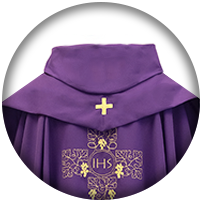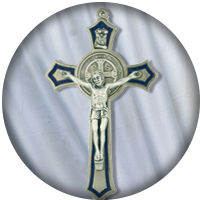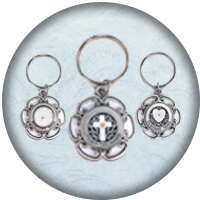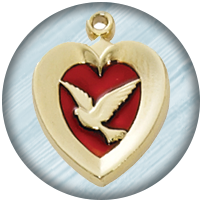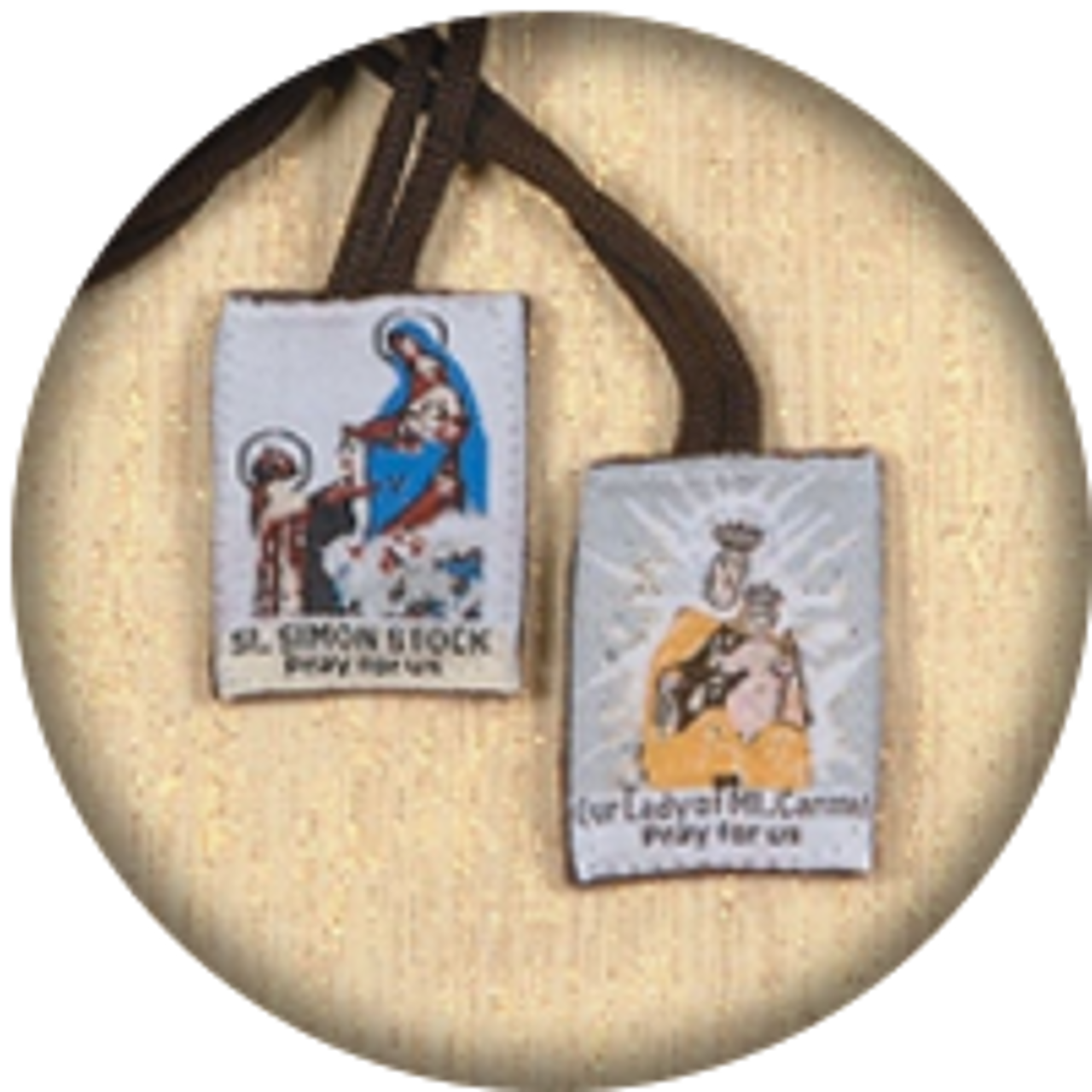THE SEVEN SORROWS OF THE MOTHER OF JESUS: THE SORROWFUL MOTHER
Kathy Boh on 22nd Mar 2017
THE SORROWFUL MOTHER
THE SEVEN SORROWS OF THE MOTHER OF JESUS
While the horrific Passion of Jesus Christ remains the prime focus (and the death and resurrection of Jesus Christ bring all the benefits of every saving grace), the Catholic Church has long honored the sorrowful life of Mary, the Mother of God, giving her two feast days to remember her grief-filled life. “The Seven Sorrows of the Blessed Virgin Mary” is on the Friday before Good Friday, and “Our Lady of Sorrows” is on September 15th.
One could say that the first announcement of her motherhood from the Angel Gabriel introduced both joy and privilege… bewilderment and wonder into Mary's life that could have easily been marked by fear and worry rather than trust and grace. In her unique circumstance, she faced Joseph, her family, and her home town’s reaction and response to her announced pregnancy. At nine months pregnant, she made the trip from Nazareth to Bethlehem with Joseph. She entered a small, overcrowded town where familiar people and familiar birth options were not present. These noteworthy difficulties were, perhaps, preparations for the upcoming words of Simeon.
Mary was introduced prophetically to the sufferings that she would face when she and Joseph presented the infant Jesus in the temple and were met by the prophet, Simeon. She lived knowing and recalling his words that “many swords would pierce [her] heart” as she walked through the years of mothering the Son of God in her intimate care. The same words given her to prepare her for raising her Son would also cause on-going seeking and wonderment that would require continual courage and faith amid tremendous mental and emotional pain.
Contemplating these and many other trials in Mary’s life led some to focus particular devotion on her sorrows. On Good Friday in Florence, Italy, in 1223, seven men were praying and meditating together and beheld a vision of the Our Lord’s Passion, and of the sufferings of His mother, Mary. They heard a call to establish an order specifically focused on these sorrows. A new religious order was founded called the “Servites”, or “Servants of Mary”.
Several saints have had special devotion to the Sorrowful Mother, Mary. Notably, we mention St. Alphonsus Ligouri and Pope Pius IX. Both had a deep devotion to Jesus’ Passion—to remember His excruciating and eternally efficacious suffering—and to Mary’s grief as the Sorrowful Mother.
Some have found great comfort in the grace that Mary lived out as she so courageously, patiently and constantly faced the numerous distresses in her life. Pondering her love and her victories has helped them persevere in their own trials and troubles. We see that particularly in a recent, 20th century event.
There is a modern-day connection to Our Lady of Sorrows that came to light in Africa in the 1980’s. Marie-Claire Mukangango was one of three high school girls in in a small Rwandan boarding school in 1982 who had (Church sanctioned) visions of Our Lady of Sorrows—with graphic warnings of the coming massacre. Visions included exhortations to encourage the world to pray and repent while there was still time. This was 12 years before the horrifying events in Rwanda in 1994. Other visionaries also foresaw these events.
Prayers were developed in honor of the Seven Sorrows of the Blessed Virgin Mary that were approved by Pope Pius VII in 1815. They were printed in the United States in Missouri in 1951, and we quote them here. There is an introductory prayer, and then an individual meditation on each of the seven sorrows listed here. We give an example of the initial prayer, and then the prayer for the first Sorrow.
ROSARY OF THE SEVEN SORROWS
Devotion to Mary, the Sorrowful Mother, has been a compassionate focus since early church history. While the Passion (death and resurrection) of Jesus Christ bring all the benefits of every saving grace, some were also drawn to the grief that Mary endured.
The Seven Sorrows rosary began in Italy in 1223. Contemplation of His Passion, and how it affected His Mother, is the focus of the last four meditations, while the first three mark his mother’s suffering earlier in His and her life.
The Seven Sorrows rosary begins with the central medal, on which an Our Father is said. It has seven decades of seven beads (marking the Hail Mary’s), separated by a medal (for the Our Father). At the end of the rosary are three beads and a medal, which represent the recitation of three Hail Mary’s (in honor of her tears) and one Our Father, Hail Mary, and Glory Be (all designated by the final medal) for the Pope’s intention.
The following is an example of the First Sorrow, its prayer and meditation.
Opening Prayer:
“Begin thus:
V. O God, come to my assistance.
R. O Lord, make haste to help me.
V. Glory be to the Father, and to the Son, and to the Holy Ghost,
R. As it was in the beginning, is now and ever shall be, word without end. Amen.
FIRST SORROW: SIMEON’S PROPHESY
Prayer:
“I grieve for thee, O Mary most sorrowful, in the affliction of thy tender heart at the prophecy of the holy and aged Simeon. Dear Mother, by thy heart so afflicted, obtain for me the virtue of humility and the gift of the holy fear of God.”
SEVEN SORROWS
Contemplation of the Seven Sorrows accompany each decade. The Seven Sorrows are:
FIRST SORROW: SIMEON’S PROPHESY
(at Jesus’ Presentation in the temple at 8 days old)
SECOND SORROW: THE FLIGHT INTO EGYPT
(upon Joseph being warned of Herod’s danger to Jesus’ life)
THIRD SORROW: THE CHILD JESUS IS LOST IN THE TEMPLE
(as Joseph and Mary searched for three days)
FOURTH SORROW: MARY MEETS JESUS ON THE VIA DOLOROSA
(and sees Him as He torturously carries His cross)
FIFTH SORROW: JESUS DIES ON THE CROSS
(Mary witnesses the entire excruciating crucifixion scene.)
SIXTH SORROW: JESUS’ BODY IS PLACED IN MARY’S ARMS
(Mary views His agonizing, bloody wounds.)
SEVENTH SORROW: JESUS IS PLACED IN THE TOMB
(her Son gone; haunting memories; buried; promises remain)

